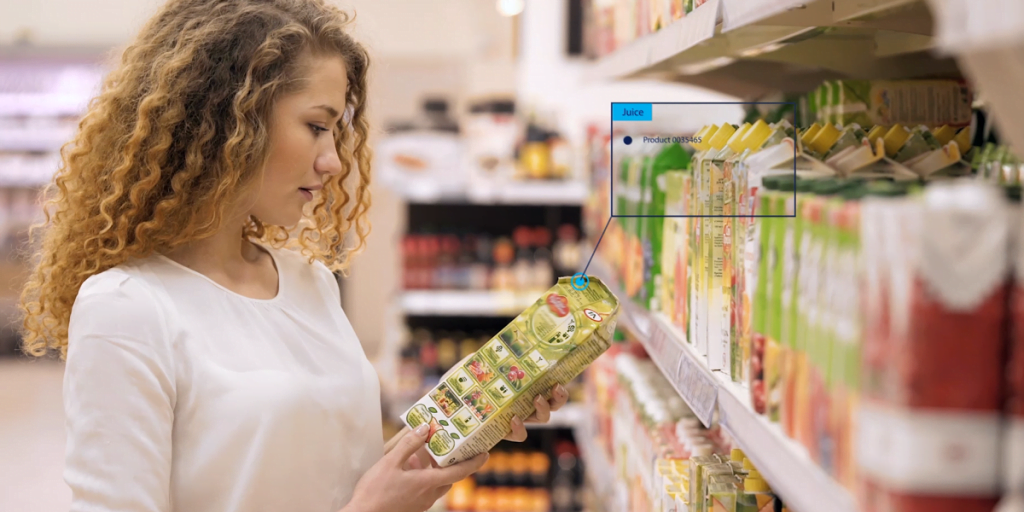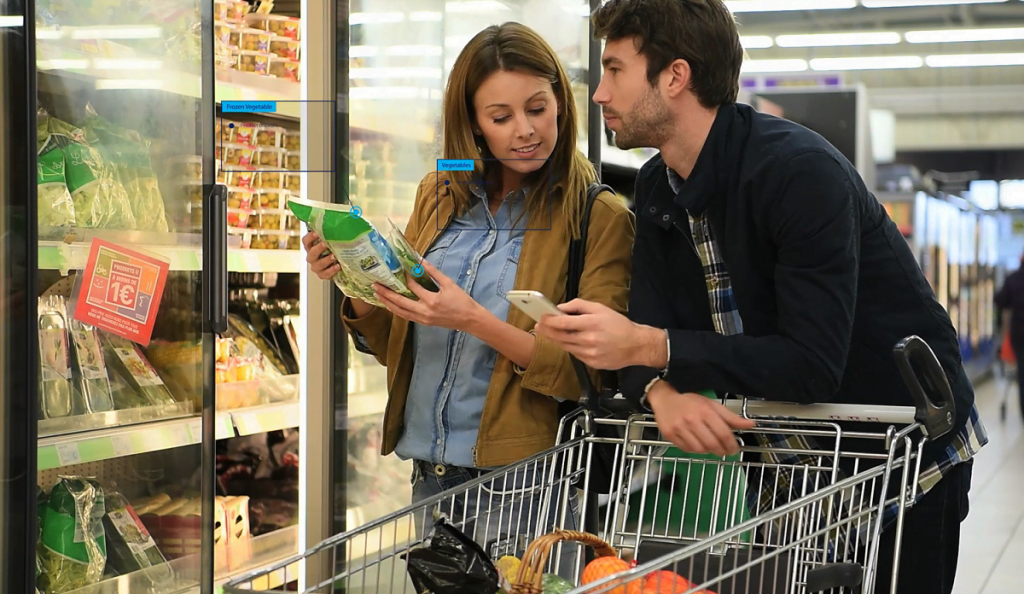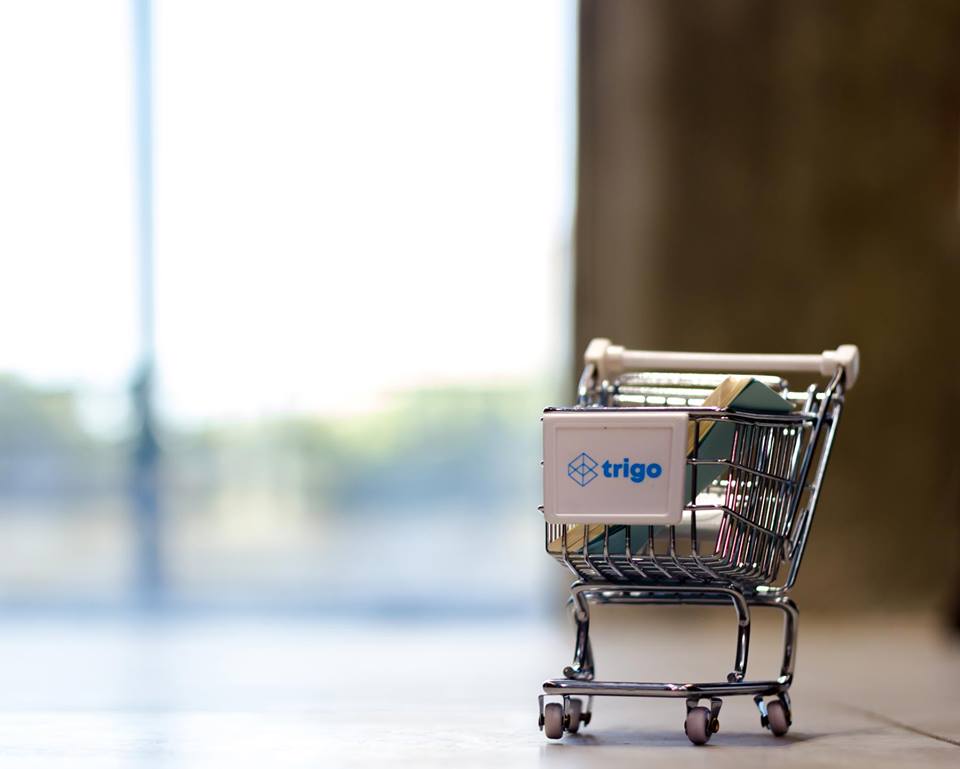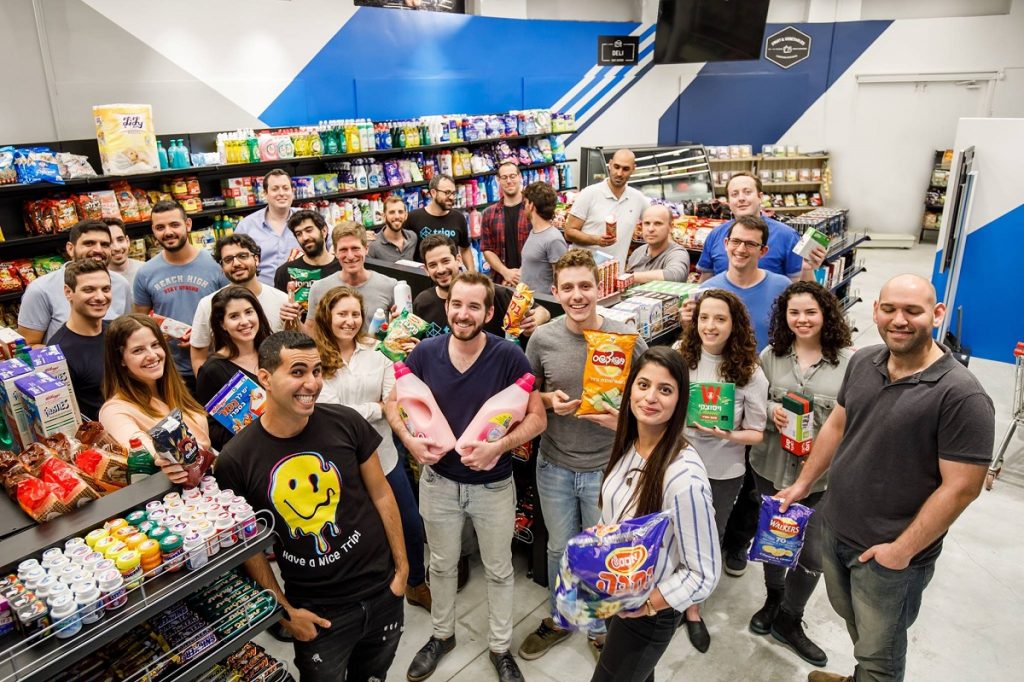Israeli startup Trigo Vision raised $22 million in a Series A funding round led by Red Dot Capital, with participation from previous investors Vertex Ventures Israel and Hetz Ventures.
Founded in 2017, Trigo Vision developed a computer vision platform for a checkout-free shopping experience that allows customers to grab items and go – and retailers to automatically charge them. The tech is similar to Amazon Go, the world’s first automated supermarket where shoppers pick up items and pay automatically through an app rather than paying a cashier. And it would allow major retailers to compete.
SEE ALSO: Israel’s Trigo Vision Wants To Bring The Amazon Go Shopping Experience To All Retail Stores
The first Amazon Go store launched in late 2016 and the retail giant now has 11 locations in four cities with plans to expand to as many as 3,000 stores in the US. But there are notable differences between Trigo Vision’s tech and Amazon Go’s “sensor fusion” which it uses to create what it calls its “Just Walk Out” technology.
Trigo’s tech would cover “two times the square footage and five times the number of products that Amazon offers,” Ran Peled, VP of marketing, told NoCamels this summer.

It would also give the customer a seamless shopping experience with a virtual checkout without losing the retailer’s character.
“I think retailers want to improve the customer experience. They understand that people don’t want to wait [in lines],” Trigo’s CEO Michael Gabay told us last year, “We develop an ecosystem and a scalable solution for every store. We’re not forcing the retailers to change their layout.”
Trigo has been working with Shufersal, Israel’s largest supermarket chain, to bring its technology to the chain’s stores – starting earlier this year with a pilot program in of its Tel Aviv branches. Trigo has also reportedly been collaborating with Tesco Plc, the United Kingdom’s biggest supermarket chain by market share to create cashier-less stores, and is in talks with other European and American retailers.
Trigo says it wants to make the grocery shopping experience better.
“I don’t actually think people really want grocery e-commerce,” Peled told TechCrunch this week. “They do that because the supermarket experience has become worse with the years. We are very much committed to helping brick and mortar stores return to the time of a few decades ago, when it was fun to go to the supermarket. What would happen if a store could have an entirely new OS that is based on computer vision?”

“We believe that Trigo’s world-leading computer-vision team will be the first to scale this technology globally and unlock the full potential of a true grocery-wide revolution,” said Barak Salomon, managing partner of Red Dot Capital. “The process of manually scanning barcodes for each separate item at check out is outdated and time-consuming. Trigo’s technology is going to save brick and mortar, revitalizing the in-store experience while keeping the best part of shopping alive.”
Trigo’s easy way to pay
Trigo’s system allows for different payment systems. Customers can register their credit card details before they shop in a store, after which Trigo Vision’s cameras will identify them when they enter a facility and charge them automatically when they leave. A second method would be to have stores install a payment screen at the exit listing the items selected and leaving the customer to simply confirm that the list is correct. A third option is to use the Trigo Vision app, which can also send notifications to customers while they are in the store.
Sign up for our free weekly newsletter
SubscribeThe Shufersal location in Tel Aviv currently uses the company’s first and second methods so far.

If customers prefer to pay cash, they can use the payment terminals located in the store, Peled says, where items need not be scanned. Trigo Vision’s system identifies goods in the basket, hand, or bag – without identifying the shopper, he emphasizes – and displays them on a screen. Customers can then pay by cash or credit.
Each store can select the method it prefers its customers use, or even adopt more than one option.
The cash option is potentially a response to the backlash Amazon Go has received for its cash-less system. In the US, the city of Philadelphia has passed a law that requires all businesses to accept cash payments and similar legislation is being considered in San Francisco, Chicago, Washington, and New York, according to reports.
SEE ALSO: Trigo Vision Sets Up Cutting-Edge, Grab-and-go Tech At Israel’s Largest Supermarket Chain
Gabay said that one of the best aspects of Trigo Vision is that it seeks to benefit the retailer as well as the customer. “The reason why retailers take our solution is that we try to eliminate logistics that will make life harder for them.”
Israeli retail tech
Another Israeli retail tech startup working in the virtual checkout sector is SuperSmart, a Rosh Haayin-based startup that developed a mobile app that doubles as a handheld scanner so that shoppers can use their smartphones to scan item barcodes. In January 2019, it rebranded as “SuperSmart powered by Bizerbra” named for partnership with Bizerbra, a German provider of weighing, slicing, and labeling tech.
Founded in 2014, Supersmart’s team of software developers, algorithm experts, and retail business leaders create various products for both customers and retailers.
SEE ALSO: As Amazon Opens First Automated Supermarket, Meet The Israeli Startups Shaking Up Supermarket Tech
Supersmart currently works with two supermarket chains, Israel’s Osher Ad, and the German-based, global retailer Metro Group.
Related posts

Editors’ & Readers’ Choice: 10 Favorite NoCamels Articles

Forward Facing: What Does The Future Hold For Israeli High-Tech?

Impact Innovation: Israeli Startups That Could Shape Our Future




Facebook comments